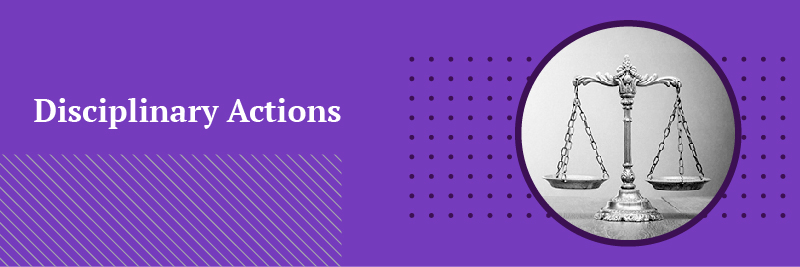
In this edition:

Procedural to Empathetic: A Shift in Approach
Tips for a Successful RCIC Practice Series
Our first article focused on the importance of staying abreast of immigration policies. Let’s explore now how this knowledge is provided to your clients.
When asked how their consulting practice has changed over the years, Ben Fok who has been practising for 11 years, talked about their shift from a procedural to an empathetic approach. After years of working with other immigration lawyers prior to having their own practice, Fok established that clients want to know their file is cared for and that a consultant’s actions are transparent and accountable.
What does this mean in day-to-day interactions with clients? “Breaking down the necessary steps and your knowledge into digestible pieces for the ‘everyday’ mind,” Fok explained. “It is best to provide simple steps and timelines without necessarily getting too deep into the specifics of IRPA sections; otherwise you might muddle an already complex process for the client.”
As you assist your client with their immigration or citizenship needs, demonstrating patience, true empathy and compassion will go a long way as you learn about their past education, marriages, divorces, moves, lost documents and successful and failed businesses. “A business class immigration file can have content just as ‘interesting’ as a spousal sponsorship file,” states Fok. “Licensees will realize that clients have experienced a lot in their lives, and they all have a story to tell.”
Beyond transparency, accountability and an empathetic approach, the Complaints and Professional Conduct Practice Management Education (PME) course advises that being a good listener and aware of different communication styles are both integral to an empathetic approach to consulting. Of course, other basic business traits are equally important to prevent issues in the client-licensee relationship and to maintain a successful business. These include but are not limited to:
- Providing clear communication, particularly with regards to
o timelines
o which tasks are yours and which are your clients
- Adhering to deadlines
- Demonstrating competency
- Knowing your client’s needs
- Setting and managing client expectations
- Being organized, careful and documenting diligently
Navigating the immigration system can be daunting and challenging. Having someone they can trust to guide them is invaluable for clients. Applying the approach above will help you build and maintain that trust. Finally, combining that approach with your knowledge of Canada’s immigration system will ensure your clients are not only well served but also feel respected and cared for as an individual.

2022 Inaugural General Meeting – the next step in the Evolution of the Profession
The College’s Inaugural General Meeting (IGM) was held in person and virtually on December 1, 2022. It was the first major event where licensees got to meet their regulator and its Board of Directors since continuance of the Council as the College.
During the question period, licensees asked many questions including why the conduct of business at this IGM was different from previous Annual General Meetings. We are providing an answer below and will answer many questions in other articles.
Legislative Change
The profession’s regulator is no longer governed by the Canada Not-for-profit Corporations Act. College governance is now set out in the College of Immigration and Citizenship Consultants Act (College Act), a federal statute purpose-built for the College and the immigration consulting profession. Now the College has its own statute, similar to provincial law societies.
Changes to the College governance model established under the College Act modified the conduct of business at this IGM. For example, licensees are no longer required to ratify By-law amendments. Going forward, the standards of the profession will be promulgated in government regulations made under the College Act and through College By-laws made and approved by the College Board of Directors. The first of these new regulations was the Code of Professional Conduct approved and issued by the federal government in June of 2022. Further regulations and College By-laws will follow over the next year or so.
This year, there were no Board elections held in connection with the IGM. This is because the College Act provides for the transitional Board (whose membership is also prescribed in the College Act) to remain in office throughout the transitional period. There is no set end date for the transitional period so far, but it will end when an order is issued by the Minister.
The College Act frames self-regulation
Self-regulation is a privilege granted to professions on the understanding that the profession will govern itself in the public interest. Public trust and respect are fundamental to a profession’s ability to serve the public. Therefore, licensees are expected to act in a way that will maintain this trust and respect. This includes treating members of the public, the regulator, and other licensees with courtesy, and not making public statements or taking actions that will reflect poorly on the profession.
The College Act states that the purpose of the College is to regulate immigration and citizenship consultants in the public interest and to protect the public. To that end, the College establishes and administers qualification standards, standards of practice and continuing education requirements for licensees.
The licensee’s obligation is to comply with the standards set by the College. For example, the College periodically determines which programs will meet these standards, and licensees must successfully complete these programs.
Finally, self-regulation also includes the responsibility to ensure compliance with the Code of Professional Conduct. At the IGM, the College announced the release of the Code Interpretation Guide. We recommend that all licensees read this guide for more information.
Note
As per paragraph 14(1)(e) of the Act, the College must make the audited financial statements available on its website (they are included in the Annual Report). Financial statements were also sent to licensees with the IGM notice of meeting.
Outreach Activities
In March, staff from the College participated in the Metropolis Canada Conference.
Metropolis Canada Conference (Ottawa) – March 16-18
The Metropolis Canada Conference brought together immigration service providers, policy makers and researchers to discuss key issues around immigration, settlement and integration. Attendees discussed emerging policy needs, best practices and research findings about immigration. This year’s conference theme was “25 Years of Conversation on Migration: Our Legacy, Our Future”.
The following staff from the Professional Conduct department and Communications and Stakeholder Relations department attended the event:

(From left to right) Laurie Collette, Coordinator, Administration (Professional Conduct); Zachary Larmand, Mediator; Christine Phillips, Investigator; Marilyn Braun, Coordinator, Communications; and Sabrina Cigana, Coordinator, Public Affairs.
College staff explained to attendees who visited its booth how the College protects the public interest by licensing and regulating RCICs and RISIAs. Staff also shared how the College’s work is critical in keeping Canada’s immigration system safe from fraud, especially as Canada welcomes historic numbers of newcomers. Delegates who visited the booth picked up educational material such as brochures, FAQ sheets, and the College Consumer Guide, which covers important questions to ask an immigration consultant before accepting their services. As March is Fraud Prevention Month, visitors were encouraged to review the College’s Top 20 Tips on How to Prevent Immigration Fraud, available at the booth.
Keep an eye out for upcoming articles on the outreach activities in which the College will participate throughout 2023 to continue raising public awareness about its mandate and authority.

The College is looking for some talented professionals to join our team.
Do you or someone you know want to be part of a team that protects the public by overseeing regulated immigration and citizenship consultants and international student advisors?
Interested in any of these opportunities? Submit your resume and a brief cover letter indicating why you feel you are a fit for the role.
For more information on these positions and the most up-to-date College career postings, visit the College's Career page.
Career Opportunity at Queen’s University
Queen’s University is accepting applications for an immigration consultant position. The immigration consultant will support faculties, departments, and researchers in relocating non-Canadian talent and facilitating arrangements for international visitors to Kingston, Ontario. The application deadline is April 24, 2023. For more information visit Careers | Immigration Consultant (njoyn.com).
Queen’s University offers the Graduate Diploma Program, the only English-language educational pathway for individuals who want to become Regulated Canadian Immigration Consultants (RCICs).

The College’s Tribunal Committee is an independent adjudicative committee that hears and decides regulatory cases about licensees in accordance with the College’s core values of fairness, transparency, and public protection.
Below are summaries of the most recent decisions of the Tribunal Committee. Full decisions are available, without charge, on the Canadian Legal Information Institute’s (CanLII) website at:
https://www.canlii.org/en/ (please enter “ICCRC” or “College of Immigration and Citizenship Consultants” in the “Document text” field).
|
Discipline Committee Decision
|
|
Licensee
|
Kimberley Cooper, R516678
|
|
Company Name/Location
|
Cooper’s Canadian Immigration Services Inc.
Sault Ste. Marie, Ontario |
|
Proceedings
|
Written Disciplinary Hearing |
|
Findings
|
The RCIC was the owner of Golden Hands Manpower Inc. (“Golden Hands”), until its dissolution on April 2, 2010. On October 31, 2016, the RCIC became a registered member of the Council (now the College). In or about 2008, the complainant retained the RCIC to hire 2 temporary foreign workers for their company through the Alberta Immigrant Nominee Program. On April 2, 2010, Golden Hands was dissolved by the government. The RCIC stated that this dissolution was done without their knowledge. The RCIC continued to represent themselves as the owner of Golden Hands, an active corporation, beyond that date and continued to send invoices on behalf of Golden Hands for immigration services. On October 5, 2011, the complainant retained the RCIC to complete immigration applications for an additional 3 semi-skilled foreign workers. As set out in their contract, the complainant’s company initially agreed to pay the RCIC a certain fixed amount for these services. The total amount ultimately invoiced by the RCIC for the services provided was much higher than the initial price. On November 20, 2013, the RCIC completed the contracts for the complainant relating to immigration services for the 2 foreign workers. The RCIC charged the complainant a much higher price than the price quoted in the original contract. On March 27, 2015, the RCIC outlined further costs even after having previously told the complainant that there would be no more charges related to those files and that the paperwork was complete.
On June 21, 2016, and June 11, 2017, the RCIC signed declarations of good character and good conduct as part of the application to become licensed with the Council and as part of the ongoing reporting obligation, declaring that they had never violated the Immigration and Refugee Protection Act (“IRPA”), S.C. 2001, c. 27., by representing immigration clients for a fee without authorization.
The RCIC acknowledged that they were in violation of articles 4.1 (good character declaration) and 4.2 (annual compliance audits) of the Good Character and Good Conduct Regulation in force from May 13, 2016, as well as article 7.2 – Restricted to Scope of Practice of the 2012 Code of Professional Ethics and article 5.2.1(iii) – Nature of Competence (familiarity with regulatory requirements) of the 2016 Code of Professional Ethics.
|
| Outcome |
The RCIC’s licence was revoked.
|
|
Costs
|
The RCIC is to pay costs to the College in the amount of $10,000.
|
|
Discipline Committee Decision
|
|
Licensee
|
Edmond Sadonou, R508030
|
|
Company Name/Location
|
Canada Experts Pro
Montréal, QC |
|
Proceedings
|
Written Disciplinary Hearing |
|
Findings
|
Complaint # 1
The complainant hired the RCIC to assist with their application to immigrate to Canada under the “Skilled Worker – Quebec” class. The RCIC failed to draft and sign a retainer agreement. The RCIC also failed to provide the complainant with updates on the progress of the application even after being contacted many times by the complainant. The RCIC did not provide any evidence of having submitted the complainant’s application nor of the outcome of that same application.
Complaint # 2
The complainant hired the RCIC to assist with their Canadian refugee claim. The RCIC failed to draft and sign a retainer agreement despite the complainant having signed a Use of Representative Form designating the RCIC as their representative. The RCIC did not adequately represent the complainant since the RCIC failed to: prepare the complainant for their hearing before the Refugee Protection Division of the IRB; ask the complainant for sufficient evidence to support their version of events; and request an adjournment of the hearing to prepare an adequate response when the IRB presented new evidence at the hearing. Complainant #2’s refugee claim was denied by the IRB.
After the complainant’s application was denied, the complainant hired a new representative to appeal the IRB’s decision. The new representative contacted the RCIC, asking for a copy of the complainant’s file in order to proceed with the appeal. The RCIC did not return the complainant’s file to the complainant nor to their new representative for the appeal. The complainant’s request for appeal was denied and their deportation was ordered.
The RCIC admitted to violating the following articles of the 2012 Code of Professional Ethics: Article 4.1 – Maintain Integrity, Article 6.1 – Maintenance of Quality Service, Article 6.1.1 – Meet all applicable deadlines, Article 6.1.3 – Communicate with the Client at all stages of a matter in a timely and effective way, and Article 6.1.5 – Answer reasonable Client requests in a timely and effective manner. The RCIC also admitted to violating the following articles of the 2016 Code of Professional Ethics: Articles 3.1 and 3.1.1 – Duty of Good Faith, Article 6.1.1 (ii) – Conduct Client affairs in an efficient, cost-effective manner, Article 6.1.1 (iii) – Communicate with the Client at all necessary stages of a matter in a timely and effective way, and Article 11.5 – Member Action Required on Withdrawal.
|
| Outcome |
The RCIC was reprimanded and ordered to complete 3 Practice Management Education (PME) courses within 12 months of the Order, namely: Agents, Retainer Agreement, and Client File Management. The RCIC was also ordered to pay restitution to complainant #1 in the amount of $3,000 within 30 days of the Order and to pay a fine to the College in the amount of $3,000 within 90 days of the Order.
|
|
Costs
|
N/A
|
|
Discipline Committee Decision
|
|
Licensee
|
Jia Liu, R510468
|
|
Company Name/Location
|
Ignite Oversea Investment Consulting Inc.
Richmond, BC |
|
Proceedings
|
Written Disciplinary Hearing |
|
Findings
|
The RCIC entered into a retainer agreement with the complainant with respect to Federal Skilled Worker Application and a Labour Market Impact Assessment (LMIA).
The complainant indicated that in certain communications, unregistered employees misled the complainant about the nature of the application and expressly conveyed to the complainant that they qualified for the British Columbia Provincial Nominee Program. This representation was untrue and outside the scope of the retainer agreement, thus causing significant confusion for the complainant. Additional misleading or untrue communications were made by an employee to the complainant, without the knowledge or instructions of the RCIC, including:
a. that the complainant was required to travel to Canada to attend training provided by a third-party organization; and
b. that the LMIA application process was subject to quotas.
The RCIC acknowledged that they did not take appropriate steps to supervise the employees or to ensure the quality of service being provided to the complainant and did not have any evidence that would refute the complainant's version of events as provided. The RCIC acknowledged that they bear the responsibility for any misrepresentations made by their staff to the complainant, including any communications not specifically authorized by the RCIC. The RCIC did not inform the complainant of the recruitment of a third party to assist in finding a job. As well, the RCIC failed to appropriately manage the complainant’s file. The RCIC admitted and acknowledged that they breached Articles 2.2.9(iv), 3.1, 6.1, 6.3 and 7.1 of the 2019 RCIC Code of Professional Ethics and the Client File Management Regulation. |
| Outcome |
The RCIC’s licence was suspended for 3 months from the date of the Order. By May 2, 2023, the RCIC is to complete the following College’s Practice Management Education (PME) courses: Client File Management, Retainer Agreement and Ethical Practice; and complete 1 Continuing Professional Development (CPD) activity: either Foreign Recruitment or Mastering LMIAs: From Recruitment to the Service Canada Interview. The RCIC is to refund the amount of $5,000 to the complainant and pay a fine to the College in the amount of $5,000.
|
|
Costs
|
The RCIC is to pay costs to the College in the amount of $5,000 by May 2, 2023.
|
|
Discipline Committee Decision
|
|
Licensee
|
Parvinder Sandhu, R418407
|
|
Company Name/Location
|
Global Strategic Business Consultancy
Brampton, Ontario |
|
Licensee
|
Devinder Sandhu, R418415
|
|
Company Name/Location
|
Worldwide Immigration Consultancy Services Canada Inc.
Punjab, India |
|
Proceedings
|
Written Disciplinary Hearing re: Motion |
|
Findings
|
The RCICs filed a motion challenging the authenticity of certain signatures contained on Witness Evidence Forms (WEFs) submitted by the College and asserted that the College had failed to provide adequate disclosure. The RCICs sought an order excluding the WEFs made by all the Complainants and the College’s Investigator. The RCICs also sought an order requiring the College to disclose certain items.
There has been an extensive number of Case Management Conferences related to this matter. All WEFs were filed and neither party sought to cross-examine the witnesses who signed the WEFs. The RCICs filed a late response to the WEFs which the College objected to, and which resulted in another Case Management Conference being scheduled. The RCICs withdrew their responses to the WEFs.
|
| Outcome |
The motion was denied. The RCICs did not establish any of the grounds for the motion and therefore it was denied. The College was directed to provide the RCICs with a copy of all emails received from the College’s witnesses containing the WEFs subsequently submitted by the College, and to resend to the RCICs the link to the interview of one of the RCICs conducted by the College Investigator.
|
|
Costs
|
Each RCIC was ordered to pay costs to the College in the amount of $3,000.
|
|
Discipline Committee Decision
|
|
Licensee
|
Kazem Seyedalikhani, R418751
|
|
Company Name/Location
|
Canada Way Immigration
Coquitlam, BC |
|
Proceedings
|
Written Disciplinary Hearing re: Motion |
|
Findings
|
The RCIC filed a motion with the Discipline Committee, asking for the Disciplinary Hearing to be held through oral adjudication while under Rule 51.1 of the Tribunal Committee Rules of Procedure (Rules), hearings are generally undertaken through written adjudication.
The RCIC submitted that while the hearing will address the 2021 complaint, there was an earlier complaint brought in 2017 which, while not the subject of this proceeding, is inexorably linked to it. The 2021 complaint stems from a civil suit brought by the RCIC against the complainant. The RCIC submitted that the 2017 complaint has never been heard and therefore the facts of the 2017 complaint have not been adjudicated and the RCIC has never had the opportunity to test the evidence of the witnesses in the 2017 complaint and that fairness demands that the RCIC be given an opportunity to do so in an oral hearing. The RCIC is also concerned that the College has disclosed new evidence in the 2021 complaint which, in their submission, may make this hearing essentially a “reworking” of the 2017 complaint.
The College submitted that the RCIC had not made out a case for the “significant unfairness” necessary to support a motion for an oral hearing as Rules 46 and 47 of the Rules provide for the exchange of written witness statements. In situations where parties disagree with points in the Witness Evidence Forms, the Tribunal Committee can allow cross-examination of the witnesses.
|
| Outcome |
The motion was dismissed. Written adjudication provides the RCIC with a fair and flexible way of making their case. Furthermore, the RCIC did not demonstrate that it is necessary to deal with evidence from the 2017 complaint. While the RCIC has asserted the connection with the 2017 complaint, they have failed to provide supporting evidence for their assertion.
|
|
Costs
|
N/A
|